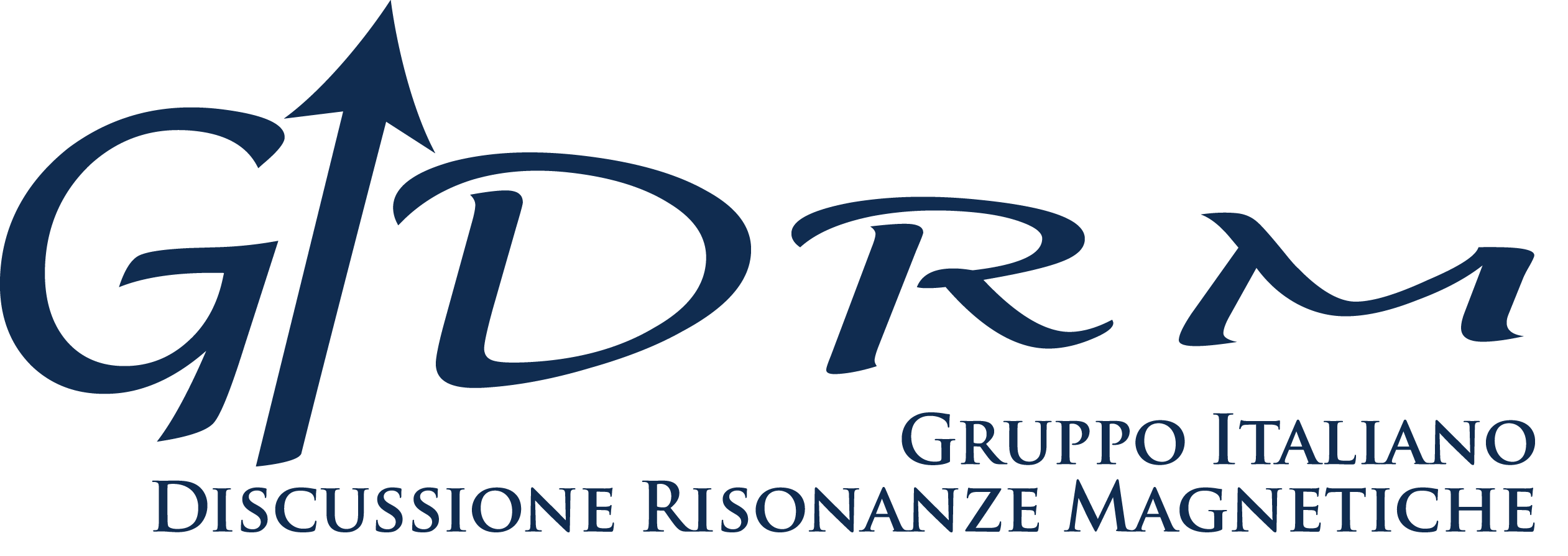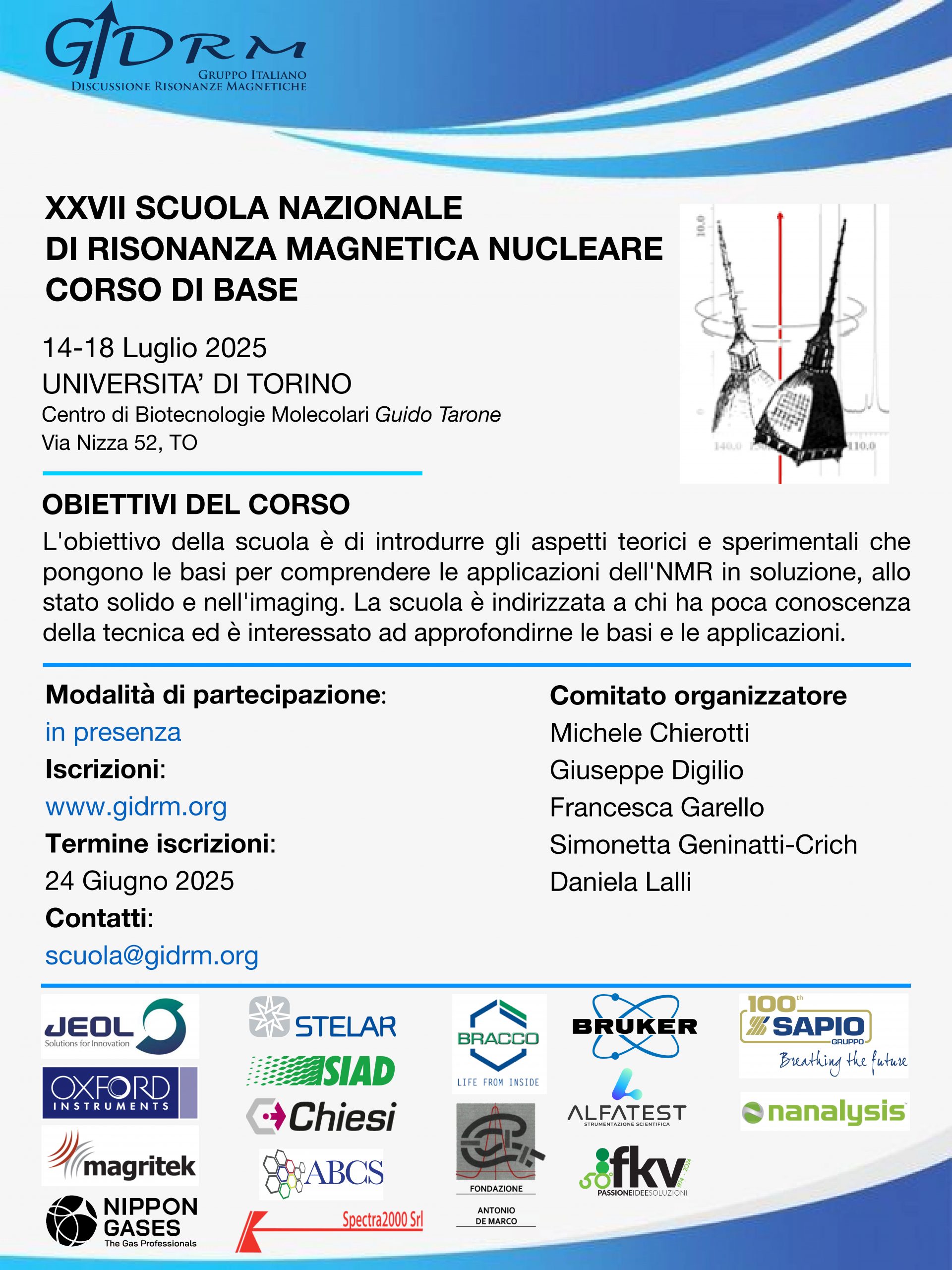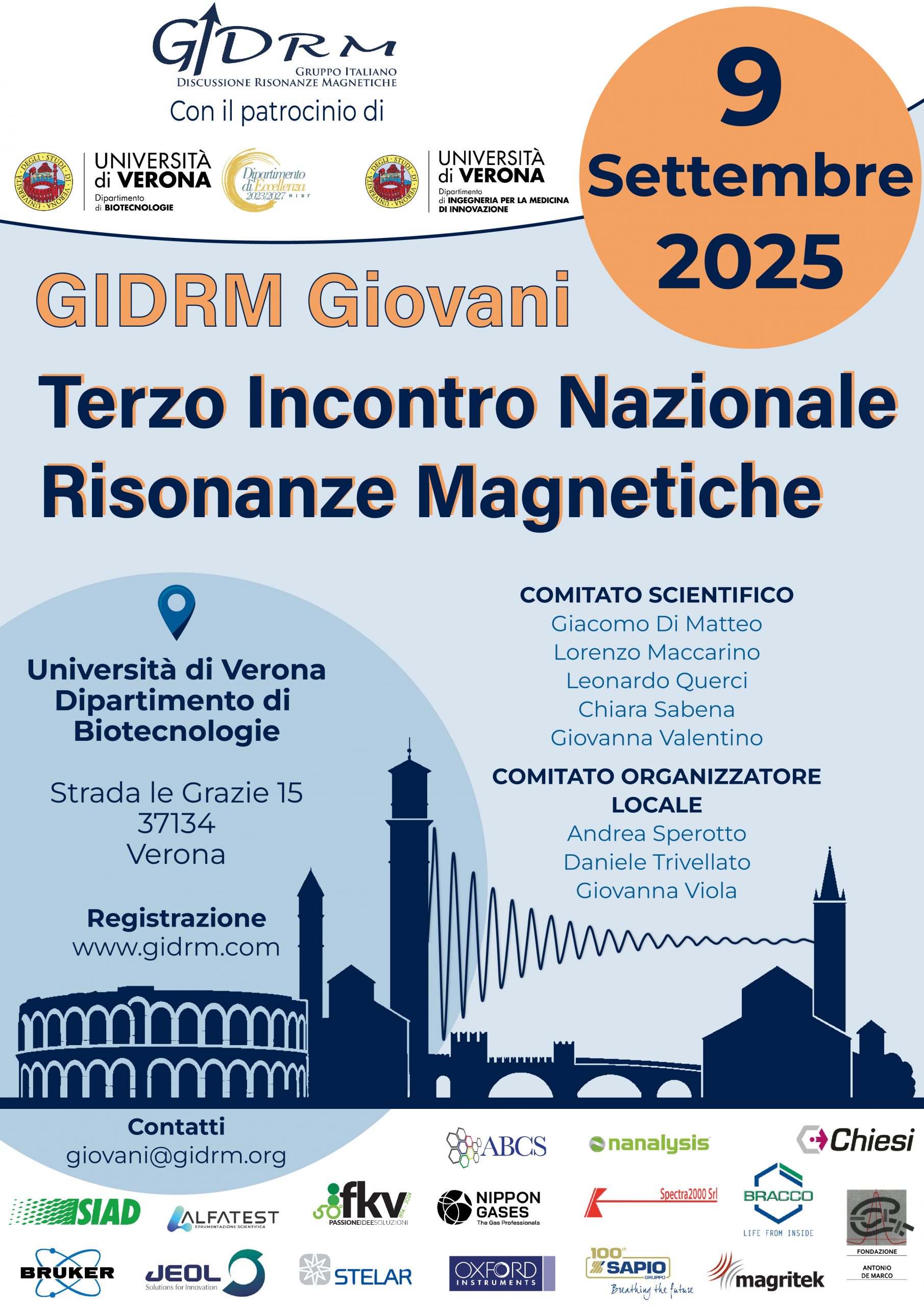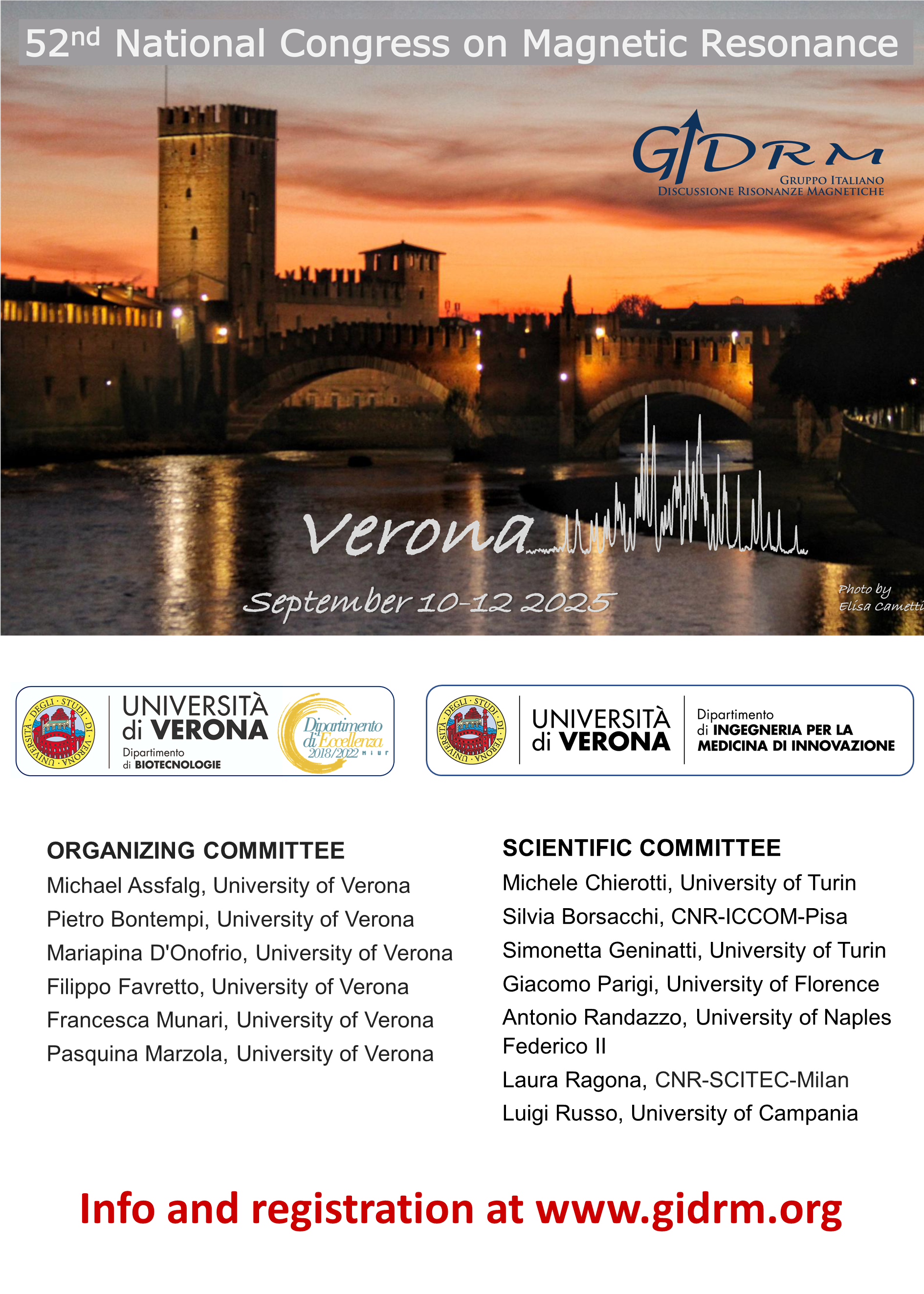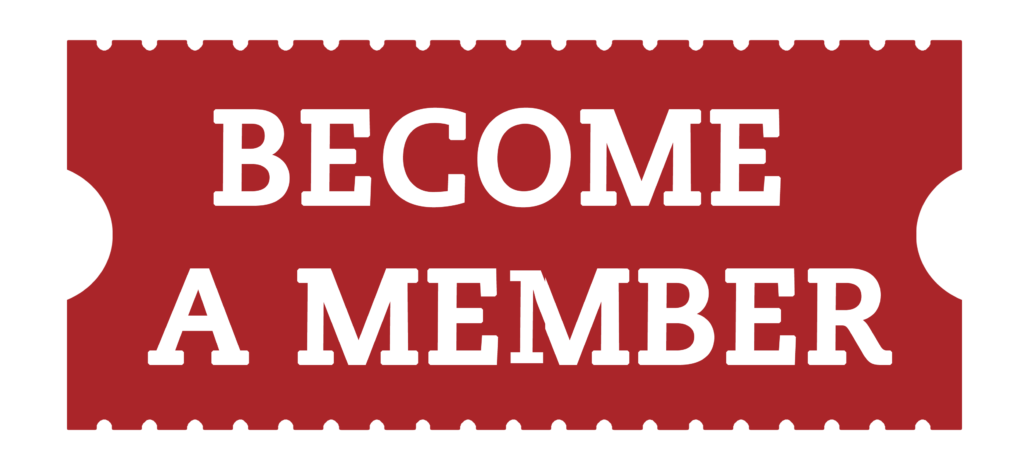Upcoming events
XXVII Scuola Nazionale di Risonanza Magnetica Nucleare – Universita’ di Torino
XXVII Scuola Nazionale di Risonanza Magnetica Nucleare – Universita’ di Torino
Terzo Incontro Nazionale Risonanze Magnetiche – GIDRM Giovani
Terzo Incontro Nazionale Risonanze Magnetiche – GIDRM Giovani
52ᴺᴰ National Conference on Magnetic Resonance
52ᴺᴰ National Conference on Magnetic Resonance
The 2nd Italian Metabolomics Network General Meeting
The 2nd Italian Metabolomics Network General Meeting
Community News
GIDRM/GIRM Gold Medal assegnata a Daniel Oscar Cicero
I consigli direttivi di GIDRM e GIRM hanno conferito la medaglia d’oro 2025 al Prof. Daniel Oscar Cicero con la...
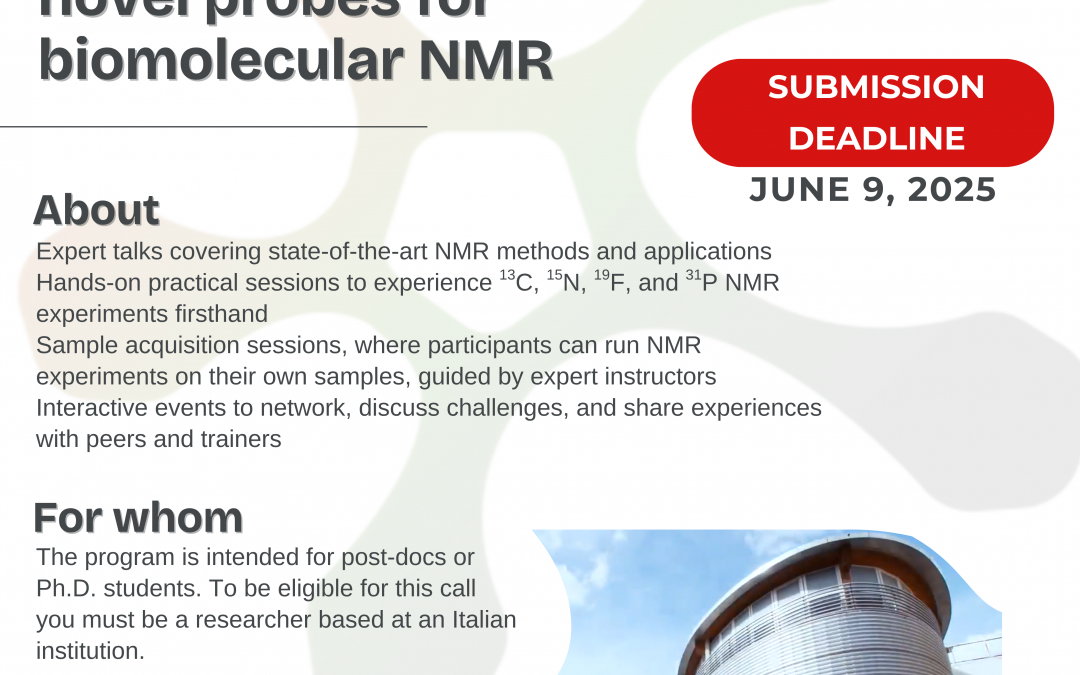
Instruct-ERIC Events: “Exploiting heteronulcei at their best: novel probes for biomolecular NMR”
Registration Date: 23-May-2025 to 09-Jun-2025 Date: 01-Sep-2025 to 04-Sep-2025 This advanced NMR course, organized in...
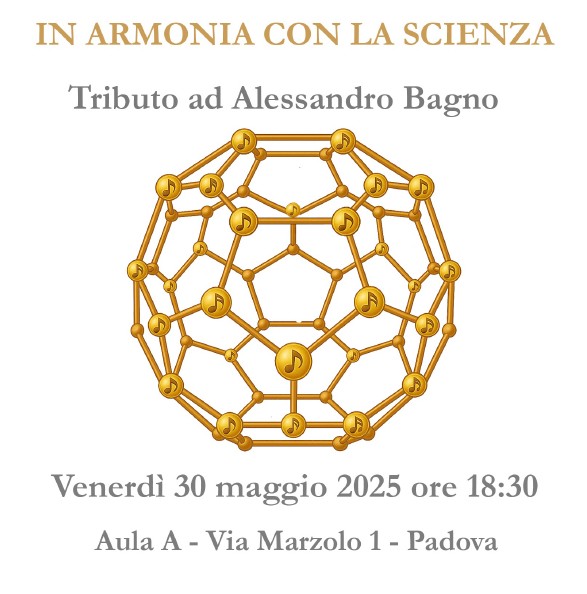
In Armonia con la Scienza – Tributo ad Alessandro Bagno
Stefano Mammi ha studiato Chimica con Alessandro dal 1976 al 1981 ed è stato Ricercatore CNR insieme a lui....
GIDRM Master and PhD Graduate Award Competition 2025 – Programma del 6 Maggio 2025
GIDRM Master and PhD Graduate Award Competition 2025 Martedì 06 maggio, ore 14:30-17.40 (Online) 14:00-14:30...
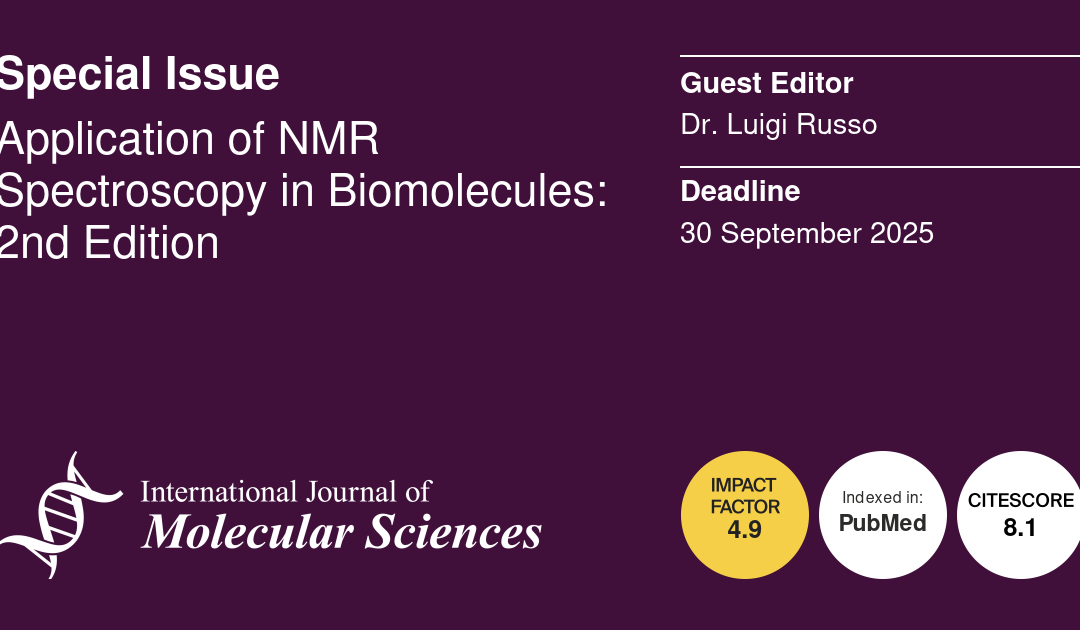
Special issue on “Application of NMR Spectroscopy in Biomolecules: 2nd Edition” of the International Journal of Molecular Sciences
Dear Colleagues, Nuclear magnetic resonance spectroscopy is a powerful biophysical technique for studying the...
Awards
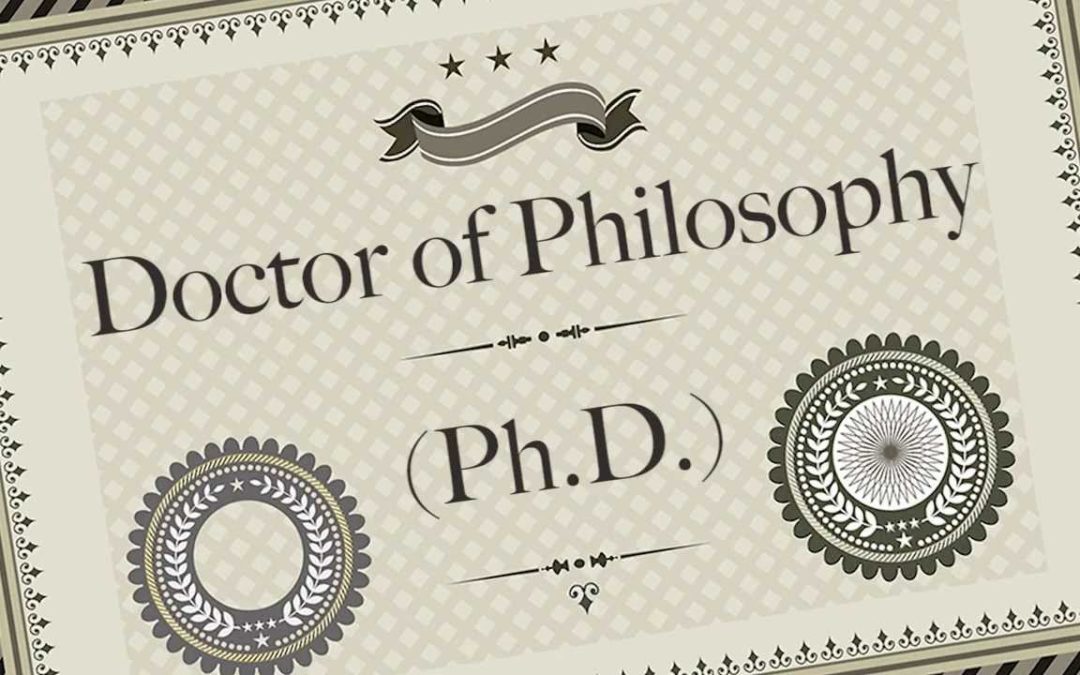
GIDRM PhD Graduate Award – 2025
[ba_alert icon="||fa||900" title="Winner of the 2024 GIDRM PhD Graduate Award" description="Alessandro Nucera...

GIDRM Master Graduate Award – 2025
[ba_alert icon="||fa||900" title="Winner of the 2024 GIDRM Master Graduate Award" description="Irene Gado...
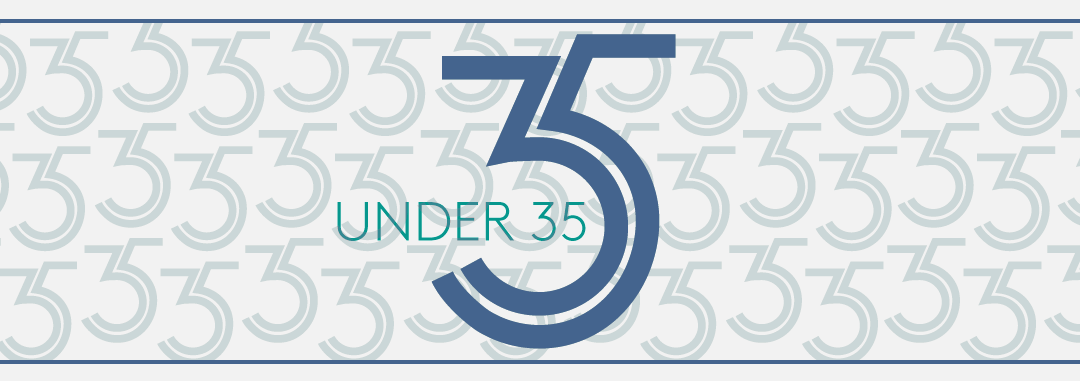
Under 35 GIDRM Award
Regolamento Il premio “Under 35 GIDRM award” viene attribuito annualmente dal GIDRM a un socio under 35 sulla base del...
GIDRM MASTER AND GIDRM PHD GRADUATE AWARD COMPETITIONS 2024
Martedì 07 maggio, ore 14:30-17.30 (Online) Selezione dei vincitori dei premi "GIDRM MASTER AND GIDRM PHD GRADUATE...
Education
Scuola NMR Torino – 2024
XXVI Scuola Nazionale di Risonanza Magnetica Nucleare – Universita’ di Torino Si terrà quest’anno, presso l’Università...
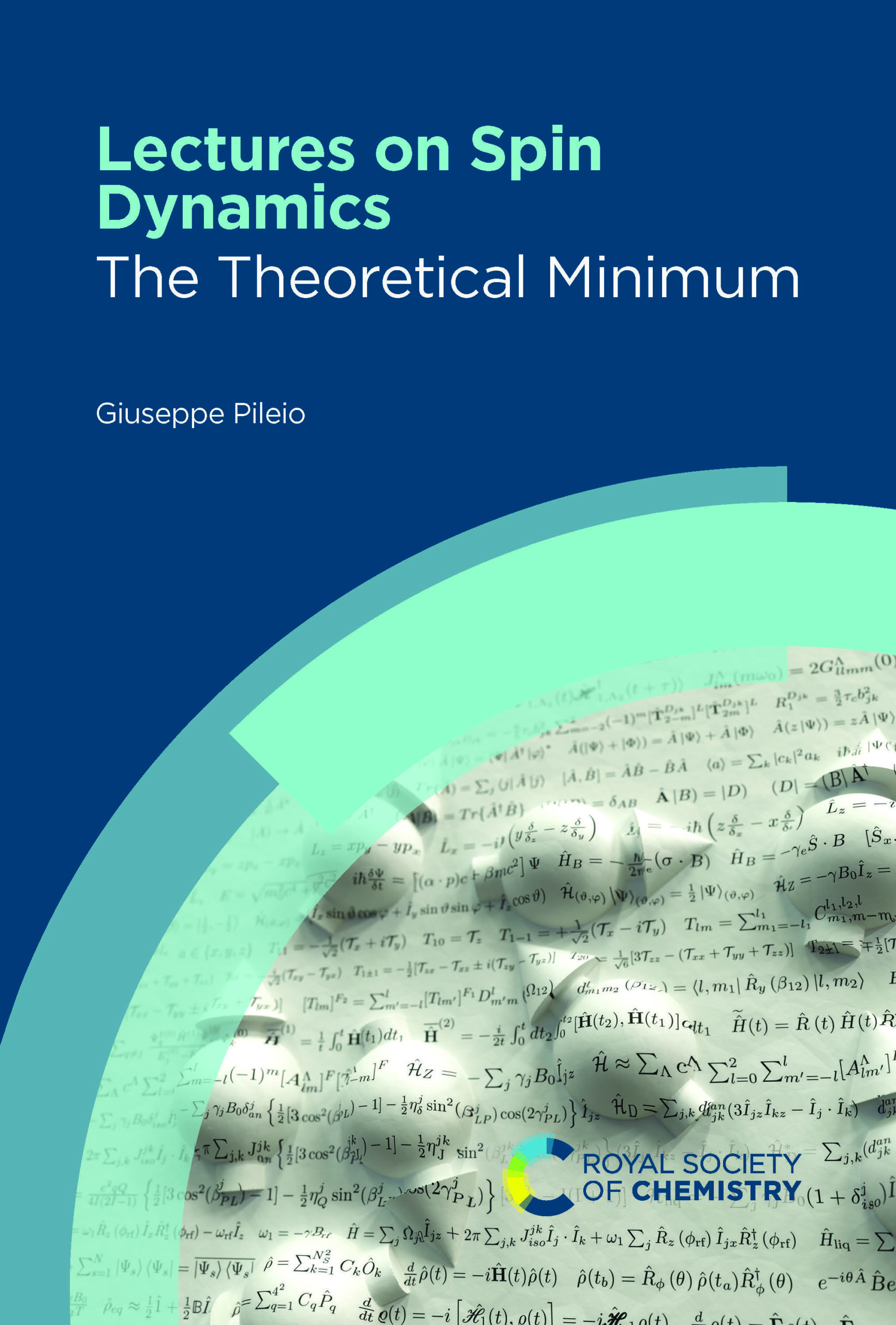
Lectures on Spin Dynamics: The Theoretical Minimum di Giuseppe Pileio
Written by Giuseppe Pileio and published on 13 June 2022 by the Royal Society of Chemistry, the book consists of a...
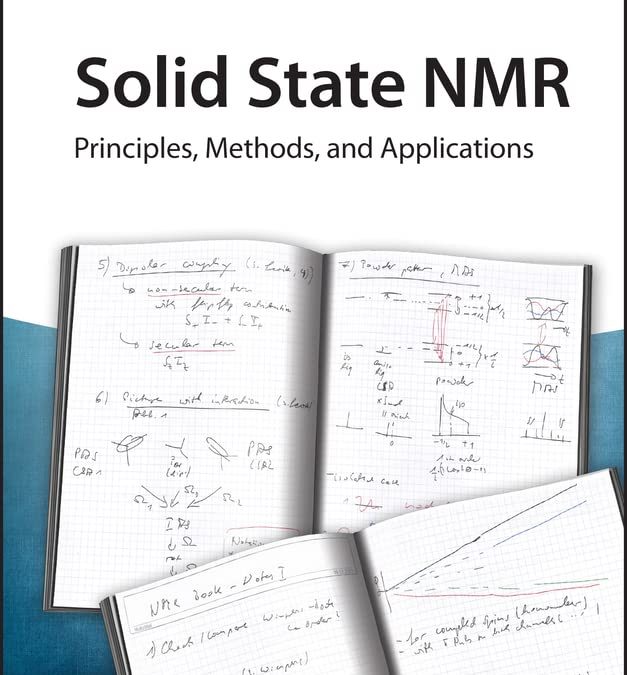
Solid State NMR: Principles, Methods and Applications di Klaus Müller e Marco Geppi
Il 28 luglio 2021 è stato pubblicato da Wiley il libro “Solid State NMR: Principles, Methods, and Applications”, di...
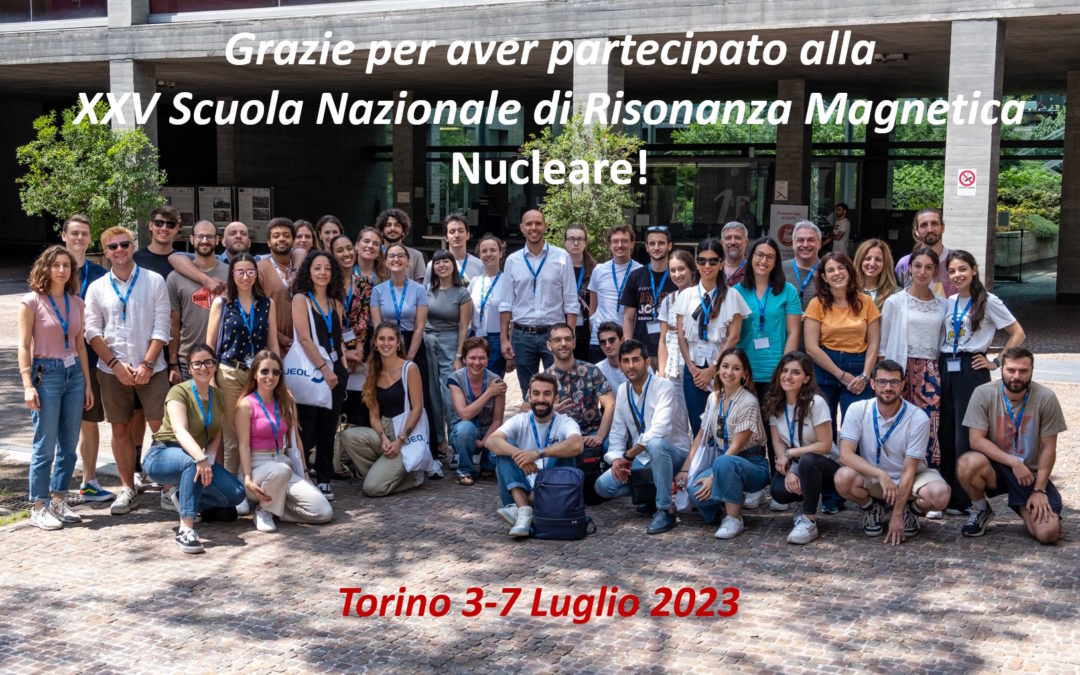
Scuola NMR Torino – 2023
XXV Scuola Nazionale di Risonanza Magnetica Nucleare - Universita' di Torino Si terrà quest’anno, presso l’Università...
Grants
BORSE DI STUDIO “Annalaura Segre – Donatella Capitani” per l’anno 2025
Il Gruppo Italiano Discussione Risonanze Magnetiche (GIDRM) bandisce, in accordo con le proprie finalità istituzionali...

Procedures and Selection Rules for GIDRM Mobility Grants (MGs) for 2025
GIDRM MGs AIM MGs provide funds to support visits to other laboratories. MGs are aimed at supporting individual...
Borse di studio GIDRM “Stefano Caldarelli” per la Partecipazione a Congressi Internazionali
Il GIDRM offre ai propri soci under 35 (che non abbiano ancora compiuto 35 anni alla data della domanda) contributi...
BORSE DI STUDIO “Annalaura Segre – Donatella Capitani” per l’anno 2023
Il Gruppo Italiano Discussione Risonanze Magnetiche (GIDRM) bandisce, in accordo con le proprie finalità istituzionali...
